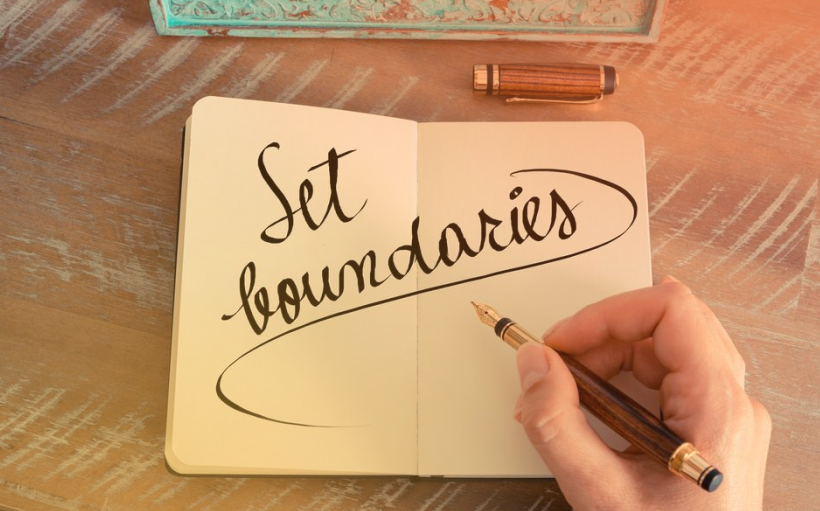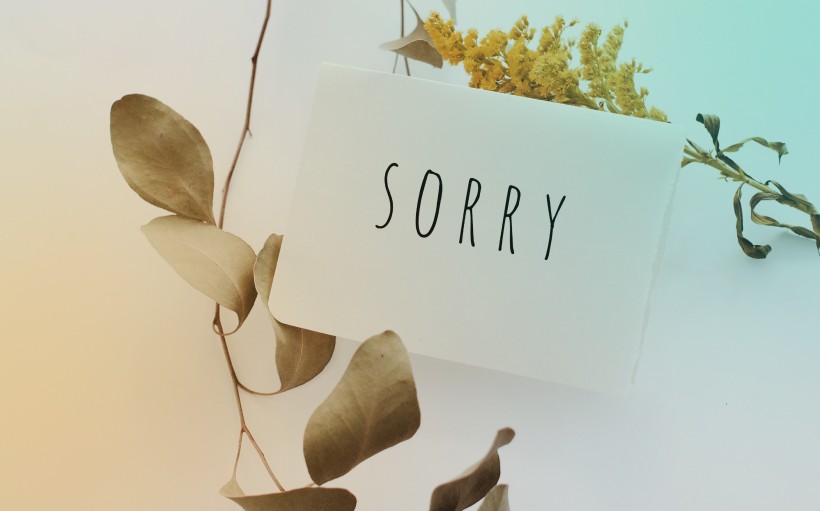After taking a required Intro to Psychology course as an undergrad, I have never looked back. Since my doctoral program, I have specialized in adult relationship therapy. Through my studies and clinicals, I wrote several articles for professional journals and currently in the midst of writing a book.
Boundaries in Relationships—Keeping Them Healthy
There are many reasons as to why it is so important to establish healthy boundaries in a relationship. But what exactly are healthy boundaries? How can you tell the difference between healthy boundaries and unhealthy boundaries? How will good boundary setting affect the average person? Let’s see boundaries manifest in the relationships, how to distinguish healthy and unhealthy boundaries, and what you can do to make them healthy.
What Are Boundaries?
A boundary is defined as a line at which one thing starts and another thing begins. You can think of it as a fence surrounding your property or as the lines on the map surrounding a country or state.
Your personal boundaries are essentially an invisible fence that you put around yourself. They are there to make you feel safe and to establish some form of autonomy over yourself. Personal boundaries are often set to create a sense of self-security, raise self-esteem, and avoid triggers being activated by outside sources.
A trigger is described as an event or stimulus that can cause memory or extreme feelings that can be both positive or negative.
A negative trigger is not something that simply annoys you or that you merely dislike. You want to avoid them altogether for they can cause lots of anxiety and/or fear. For example, if you were a victim of being dumped badly, it has left a scar on your psyche. And there may be places or situations that trigger that pain. You will want to avoid those with any new relationship.
What Are Healthy Boundaries?
Simply put, healthy boundaries are lines that contribute to your physical well-being, your mental health, and even your financial stability. You draw them so others don’t cross as they include restrictions, such as respecting your privacy on your computer, phone, and other devices, giving you your space when you are working from home or just need time alone, or not coming over without calling first. Healthy boundaries are needed to have a good and mutually beneficial relationship with others.
Why Setting Boundaries Is a Good Thing
When you set boundaries, you gain these benefits in your life:
- Protecting yourself
- Feeling self-empowered
- Gaining self-respect
- Having more comfort (physical and emotional)
- Asserting the details of your relationship dynamics with others
If you don’t set boundaries, you risk getting into toxic relationships and/or enabling others to continue their bad behaviors. But once you work on them, if you waver or allow someone to cross a line, you can end up with someone taking advantage of you, or, worse, in a toxic relationship.
Related reading: Toxic Love: Are You Feeling It?
Toxic relationships can exist anywhere in your life:
- Family members who don’t respect your privacy
- Co-workers who take advantage of your niceness and pawn their work off on you
- Best friends who continue to borrow money and not pay back
If you give in, you will become stressed, resentful, and even mentally exhausted. Even more, it will impact all aspects of your life.
If you find yourself hesitant or unable to set firm boundaries and stick to them, then it’s likely you are a “pleaser” who may suffer from low self-esteem too. In this event, you should get some professional help to develop your independence and autonomy.

4 Types of Healthy Boundaries
Saying “no” is key to your mental health. And that’s what boundaries are all about. Depending on the relationships, you may need one or more of these five boundary types.
Also note that boundaries can change over time. You can set clear boundaries at the beginning of a relationship to change them when your romantic bond strengthens, for example. You may become open to new ideas about sexual activity, ready to have intimate conversations about your past relationships, or have altered your beliefs about marriage and family. If that’s the case, be flexible with your boundaries: it’s all good if it’s good for you.
1. Physical Boundaries/Needs
“The brain computes a buffer zone around the body…like a “second skin” hardwired into our DNA.”
Dr. Michael Graziano, neuroscientist, and author of the book The Spaces Between Us
“Personal space” is a term we’ve all heard. It refers to an area around yourself that psychologically “protects” you from things and people – a type of buffer. You allow others into that buffer zone – family, friends, lovers.
Your personal space is how much physical space you need, both within the presence of others and when you want to be alone. Covid aside, sometimes you prefer to wave or shake hands instead of a hug. At work, you may not want your personal space violated – someone looking over your shoulder, standing too close during a conversation, etc.
2. Emotional Boundaries
You have a right to your personal privacy regarding your thoughts, feelings, and personal issues. And you have the right for other people to respect these emotional boundaries. Feel free to tell people that you’re not comfortable answering their questions or talking about something that triggers emotions in you.
If someone you are dating, for example, wants to know about your exes or your previous breakups, you absolutely don’t have to talk about them.
Your boundaries can also include not “taking on” the emotional issues of others. In short, it’s “not your circus” unless you want it to be. Be careful about being pulled into others’ emotional issues.
3. Boundaries of Time
You never have much time. And if you are not aggressive to protect it, you will lose it to others who demand it. It’s called “putting your foot down.”
You have a right not to be interrupted while you are at study or work. You have a right to go off by yourself, uninterrupted by anyone, including your partner, and not to engage in time-consuming discussions when they usurp your time.
Spend time with yourself first and then with others when you have time.
4. Putting the Brakes on Your Financial Drain
If you are a giver, it’s hard to say “no” when someone comes to you in need. That need can be anything – from borrowing an expensive tool to needing a cash loan until payday. So, are you the tool rental store or someone’s ATM?
If you don’t stand firm with your boundaries, you will continue to be taken advantage of, especially if your partner is a “taker” who:
- Constantly forget their wallet or card
- Continually ask you to stop by the store or restaurant for takeout on your way home
- Ask you to make hotel reservations for a planned trip
Yes, emergencies come up. But that’s not what this is about. If some things keep happening to you constantly, you may need to re-evaluate your relationship boundaries.
Related reading: Setting Healthy And Fair Expectations in a Relationship
Unhealthy Boundaries: Too Stiff or Too Loose
If you set boundaries that are too rigid, it’s usually a sign that you have some emotional issues – you fear intimacy or being taken advantage of. This can manifest in many ways. You may hesitate to become emotionally or romantically involved with someone you have been dating far too long. And they may lose interest because you are not responding to their overtures in a “normal” way.
If you set boundaries that are too loose, you set yourself up to be taken advantage of. People you date may talk you into doing things that are not comfortable, but you don’t want to say anything, because you want to please them.
Reasons for Too Strict Boundaries:
- You want control: You set tough standards until you get what you want from a person
- Lack of relationship experience: You have little to no experience in relationships and what a relationship boundary should look like. And so, you set them too high. If that’s your case, take heart, you’ll modify them later.
Reasons for Too Loose Boundaries:
- You fear rejection: If you don’t have a strong self-image, you may want to let people “have their way.” This is what you previously have read as being a “pleaser.”
- You are a “giver:” You find joy and happiness in serving others and helping them whenever they are in need. In relationships, this can result in people you date taking advantage of you – physically, emotionally, and financially.

2 Tactics to Get Ready to Setting Reasonable Boundaries in a Relationship
Healthy boundaries in relationships begin with a healthy sense of self. And when you have a strong sense of who you are, you can set healthy boundaries in relationships with others.
If you haven’t thought about your personal needs and expectations for your behavior and that of others, use these tactics to begin.
1. Define What You Need and Want in a Relationship
“When entering a challenging situation or discussion, try to know what boundaries you want to set or enforce. When we plan ahead, it may help us feel more confident and at ease.”
Dr. Carolina Raeburn, PsyD and licensed clinical psychologist
Boundary setting begins with your idea of ideal relationships at home, at work, with family, and with a partner. It’s a good idea to make a list of what you want with examples including:
- Traits of others that make you feel respected
- Traits or behaviors that annoy you or make you feel uncomfortable
- Alone time you may need to re-charge
- Reasons why your past romantic relationships ended
- How you like to help and be helped
- An environment that contributes to your emotional well-being mostly
- Your values (independence, outside interests, and hobbies)
- Your views on physical intimacy (how soon, what types work and don’t work)
You can set healthy boundaries at any relationship stage – just remember to do this. Draw on current and past relationships to know what details contributed to your overall well-being and what relationship details made you uncomfortable. These will give you clues for setting boundaries in relationships, current and future.
Related reading: How To Maintain Your Individuality While In a Relationship
2. Reflect on Your Feelings When You Are Dating Someone
As you enter into dating relationships, weigh what goes on against your list. Are you seeing any red flags? Are your relationship boundaries being honored? Here are some questions to ask yourself about your new date:
- Does this person seem to be trying to control your time or other relationships with friends or family?
- Does this person have some of the behaviors that your exes did?
- Is this person disrespectful to others or somewhat disrespectful to you?
- Do they pressure you to cross over the physical boundaries you have set?
- Do they cross over the other boundaries you have set, apologize, but continue to do so?
- Are they honoring your spiritual boundaries and respecting your beliefs and principles?
Suppose you are experiencing any discomfort or difficulty trying to maintain boundaries in relationships. In that case, it’s time to step back, re-group, and look at why maintaining healthy boundaries doesn’t seem to be working for you:
- You have set poor boundaries from the beginning – possibly too rigid for others to meet
- You have set blurred boundaries – you haven’t been clear and specific enough
- You are in a relationship with someone who won’t or can’t meet your relationship boundaries
Setting Healthy Boundaries = Healthy Relationships
Now that you are ready to start, your first step in practice will be to clarify your boundaries in each area – physical, emotional, financial, and time. Put them into writing to clarify them for yourself. Then, you can start setting boundaries and expectations with your partner.
Here is how you can initiate that conversation on the ground rules:
- Pick the right time: You can’t communicate well while emotionally flooded (in an argument, really stressed, etc.). Make sure both of you are calm and focused on the conversation.
- Make a list of things worth saying: Make sure you know what you will say. Practice how you will defend the boundary you’ve chosen. Also, use “I” statements: instead of “you aren’t respecting my need for time to be alone,” say “I need more time alone.” The delivery is important.
- Be specific: Setting vague boundaries won’t cut it. Instead of saying, “I need more alone time,” say something like “I need for you to call before you come over, because I may need to be alone at that time.” Be calm but firm.
- Answer questions directly and honestly: Make sure your partner understands the boundary you have set. The goal? You have set the boundary, and your partner understands and agrees to it.
Important note: If your relationship partner gets upset or angry about your boundary, then you cannot be responsible for their reaction – do not give in to them. If they cannot honor you need for setting healthy boundaries for your relationship, then you need to walk away. And there is no need to feel guilty when you establish boundaries that others cannot honor.
What to Do When Your Boundary Is Violated
When your boundaries are not honored, either unintentionally or intentionally, you must respond. It’s time to get tough and firm in reinforcing your boundaries in relationships.
1. Repeat Your Boundary Loud and Clear
Maybe your partner didn’t really understand the original boundary or forgot about it? These possibilities are not likely, but it’s important to double-check.
Be firm and clear and get commitment from your partner moving forward. Say something like, “I feel pressured when you violate my boundary, and it has to stop now. Are you sure you understand what this boundary means?”
2. Address the Consequences of Continued “Violation”
Depending on the types of boundaries being violated, you will need to establish reasonable and appropriate consequences for those violations.
Suppose your partner has crossed the financial boundaries that you have set. Then, it’s worth saying, “You cannot make major purchases from our joint account without talking to me first. If you do this again, I’ll set up my account and give you half of the joint expenses we agreed on.”
The key thing here? Be with your own thoughts for a minute and make sure you can actually follow up on what you say. Otherwise, your partner will not take you seriously and violate that boundary again.
Related reading: Master the Art of Talking to Girls
Examples of Healthy and Unhealthy Boundaries
“Boundaries are something that is never too late to learn. You can start any time. You can let something slide for years and one day decide you want to put up a new boundary.”
Kaytee Gillis, LCSW-BACS, psychotherapist and author
Creating healthy boundaries takes thought, time, and effort. That’s why it is so important to distinguish unhealthy and healthy boundaries so you don’t waste effort in the wrong direction. Here are some practical examples to help you navigate setting and maintaining boundaries in your relationship.
Healthy Boundaries: 5 Examples
Healthy boundary: We will not spend money in our joint account without discussing it.
One of the healthy boundaries that is a must if two people are living together and want to keep a healthy relationship. When one partner is not consulted as the other spends joint money, it quickly dissolves trust and, of course, breaks a financial boundary. This behavior can be a dealbreaker if one partner has suffered from this bad behavior from partners or family members.
Healthy boundary: We will always practice safe sex
If people who are dating are not monogamous, this is one of those healthy relationship boundaries that almost goes without saying. Even if one partner balks at this, they must honor the other’s request. If not, it’s time to move on.
Related reading: ENM Relationship: What is Ethical Non-Monogamy?
Healthy boundary: We won’t visit without calling first
These are personal limits created out of mutual respect, even between romantic partners. It’s a healthy boundary because one of you may need alone time after a bad day, simply want to binge-watch a series on their own, or just have their own physical needs to tend to.
Healthy boundary: We will not criticize or mock each other’s beliefs
Religious and spiritual beliefs are intensely personal. Each has his own way of thought and practice and should feel safe and secure in those beliefs and practices. This is one of those examples of healthy boundaries that speaks to full respect for one another.
Healthy boundary: We won’t try any new sex activities until we discuss them first
This should go without saying, but if one partner feels pressured to cross a boundary in the bedroom, sometimes in the heat of the moment, it’s just not fair play.
Unhealthy Boundaries: 3 Examples
Unhealthy boundary: I can verbally take out my anger on you
Really? This totally violates the physical and emotional boundaries. While hearing this, you or your partner have every right to enforce a boundary that is rigid and strict. If they say they will leave in this situation, they must leave.
Unhealthy boundary: I can “approve” of how you dress
Uh…no. Being who you are is one of those examples of healthy boundaries that everyone should have, including what you wear and how you groom yourself. You don’t need to dress to please anyone else. That’s part of your happiness. People need their own identities even in the most intimate relationships.
Healthy emotional boundaries should not include “approval” of how you physically present yourself, to your partner, or even to a family member.

Unhealthy boundary: I need to control the money
Couples enter into exclusive partnerships because they have expectations of a future together. When one partner sets a boundary of financial control, it is really a type of abuse. There may be all sorts of justifications, such as “We need to save, and you spend too much,” but these are just excuses for a type of control.
The other partner may begin by thinking this is perfectly fine and not really feel anxious about it at first and even feel obligated to agree to subjugate their own needs for some financial independence for the good of the relationship.
Over time, though, they may develop a greater sense of self and feel overwhelmed that they have no say in the financial accounts and must rely on their partner for money for their own needs and wants. Their own feelings are now respected. This is one of those types of boundaries that will ultimately bring conflict. It’s an emotional boundary that ultimately cannot be tolerated. Your emotional health requires that you have some control over your own behavior with spending.
Setting Healthy Boundaries Is Key for Your Own Happiness
A healthy boundary is the basis of a happy life, helping you to maintain focus on your own identity in all the spheres of your life. Be that financial boundaries or protecting your private physical environment, setting boundaries is important for you and your partner alike if you are interested in healthy relationships. Make commitment, listen, ask questions, and make sure you understand your partner’s boundaries to avoid negative emotions and ensure mutual commitment.
Setting boundaries is the art you can learn your whole life. If it’s hard for you to change your love situation, try to create healthy boundaries in other spheres of your life first. With practice, it’ll be easier to enforce boundaries in your relationship too.








